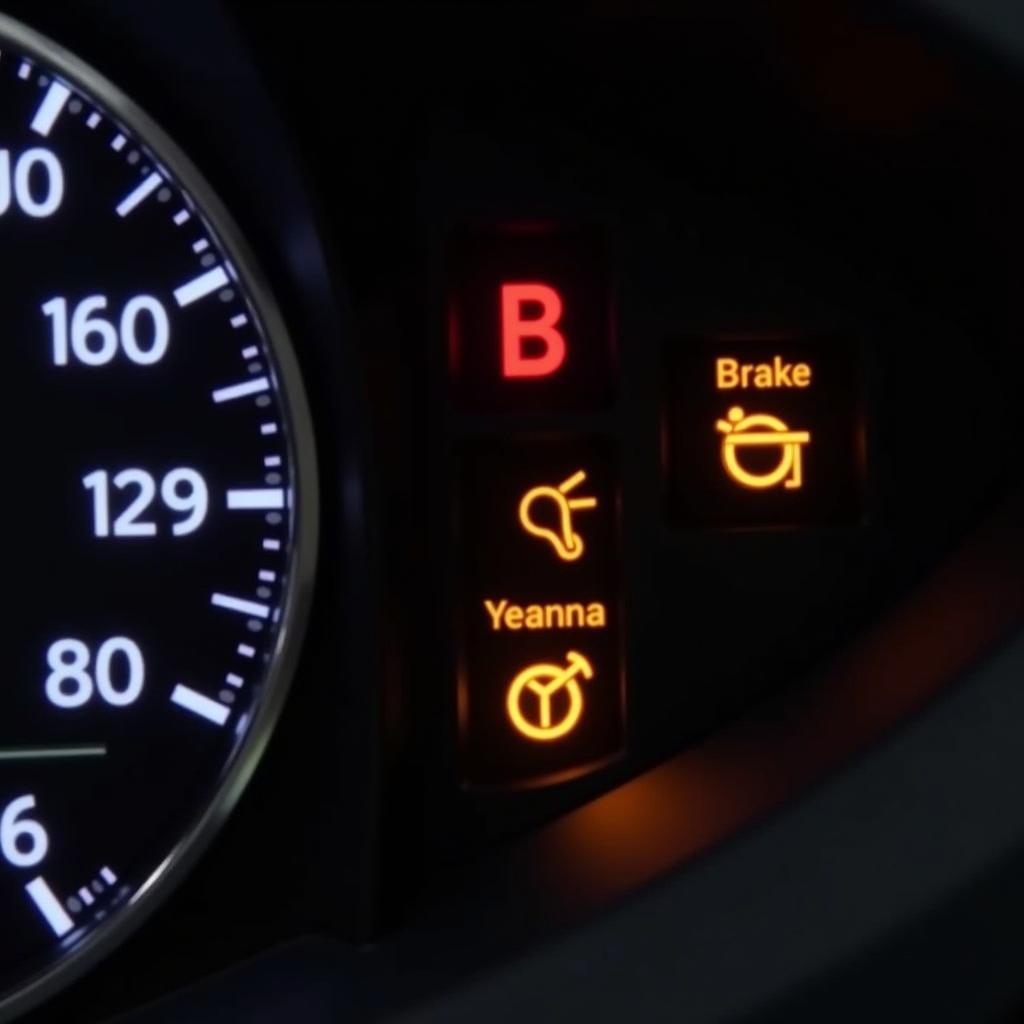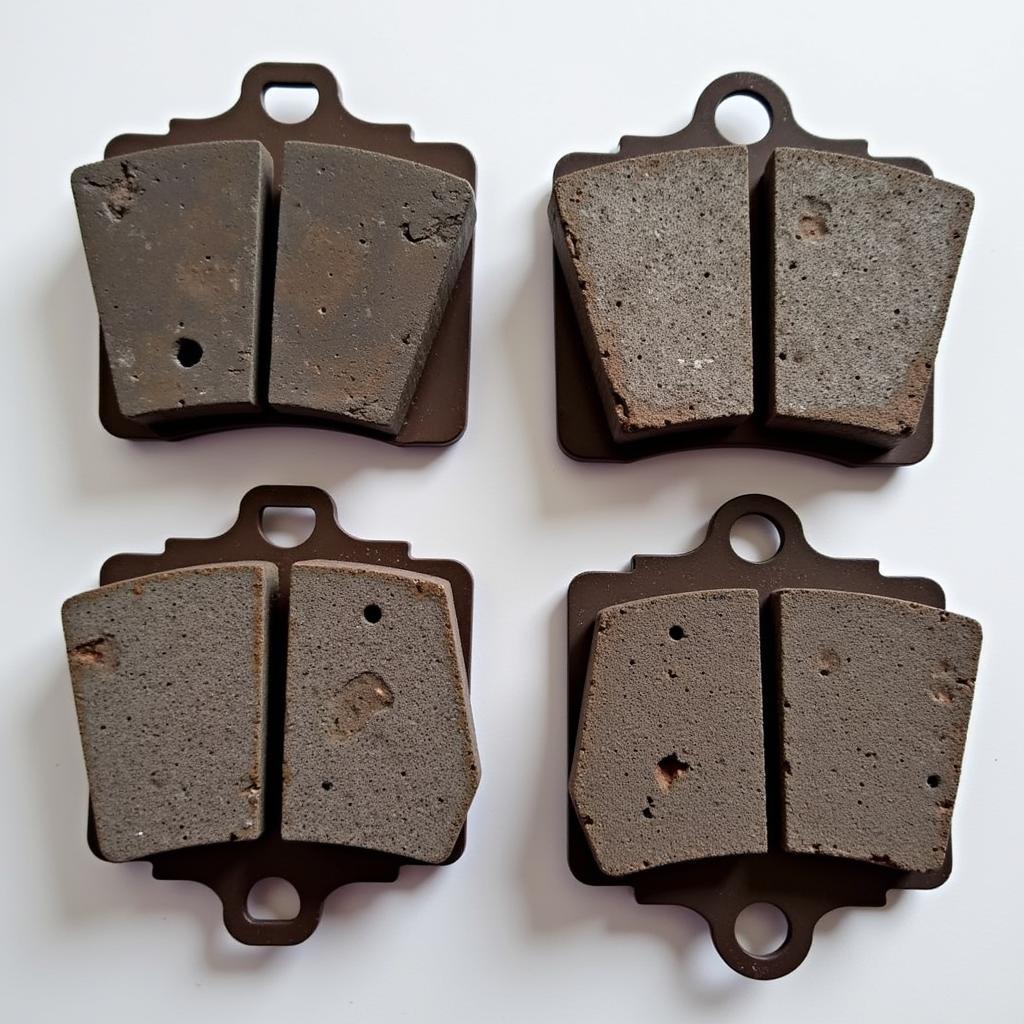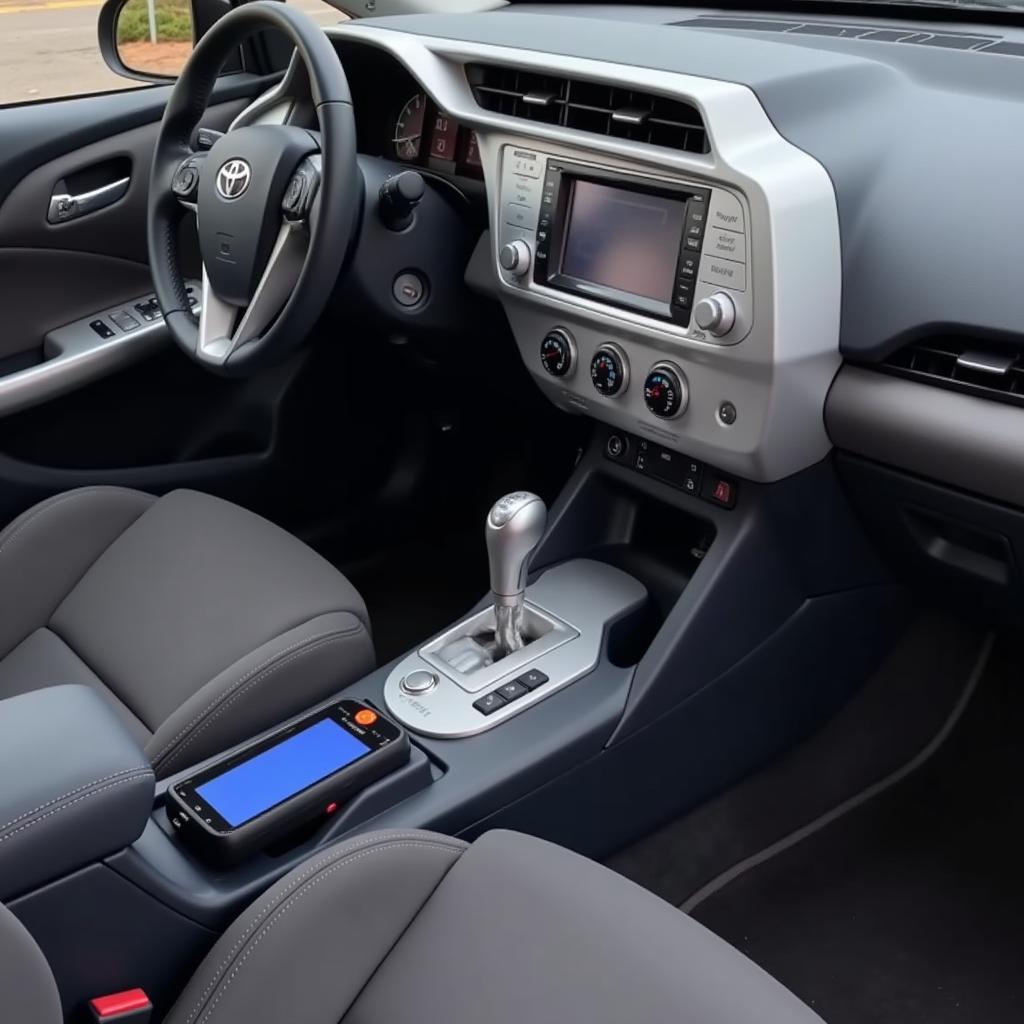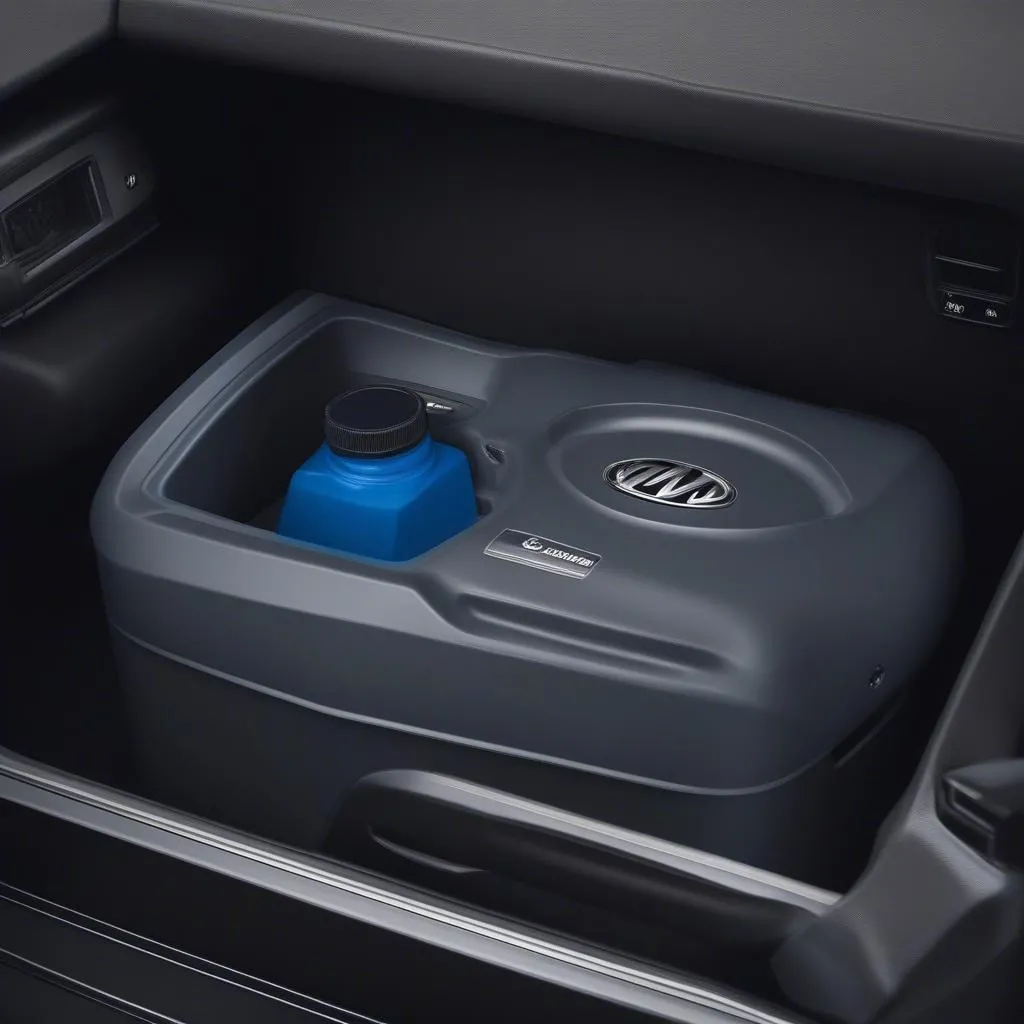“Why are my Toyota Prius warning brake lights on?” This is a common question among Prius owners, and it can be a sign of several different issues. While the Prius is known for its reliability, its complex electrical system can sometimes throw a curveball.
This comprehensive guide will walk you through the possible causes of this warning light, how to diagnose the problem, and the most common solutions.
Understanding Your Toyota Prius Brake System Warning Lights
The Toyota Prius has several warning lights related to your brakes, each with a specific meaning:
- Red Brake Warning Light: This light indicates a serious issue with your braking system, such as low brake fluid or a malfunctioning component.
- Yellow Brake System Warning Light: This light usually points to a problem with the electronic brake systems, like the ABS or VSC.
- Parking Brake Light: This light simply indicates that your parking brake is engaged.
If your red brake warning light is on, it’s crucial to stop driving immediately and have your car towed to a mechanic. Continuing to drive could lead to brake failure and a dangerous situation.
 Toyota Prius dashboard with brake warning lights illuminated
Toyota Prius dashboard with brake warning lights illuminated
Common Causes of “Toyota Prius Warning Brake Lights On”
There are several reasons why your Toyota Prius warning brake lights might be on. Here are some of the most common culprits:
1. Low Brake Fluid
One of the most common reasons for the brake warning light is low brake fluid. Brake fluid is essential for your car’s hydraulic braking system, and as brake pads wear down, the fluid level naturally decreases.
Solution: If you suspect low brake fluid, check the level in the reservoir. If it’s low, top it up with the recommended brake fluid type for your Prius. However, it’s also crucial to inspect for leaks in the brake lines or calipers. If you notice a leak, have it repaired by a mechanic immediately.
2. Worn Brake Pads
Your Toyota Prius is equipped with sensors that monitor the thickness of your brake pads. When the pads wear down to a certain point, the sensor will trigger the brake warning light.
Solution: If your brake pads are worn, you’ll need to replace them. It’s recommended to replace both the pads and rotors simultaneously for optimal braking performance.
 Worn brake pads on a Toyota Prius
Worn brake pads on a Toyota Prius
3. Faulty Brake Light Switch
The brake light switch is a small component that activates your brake lights when you press the brake pedal. If this switch fails, it can cause your brake warning light to illuminate, even if your brake system is functioning correctly.
Solution: A faulty brake light switch needs to be replaced. While a relatively simple repair, it’s best to have a mechanic diagnose and replace the switch to ensure it’s done correctly.
4. ABS or VSC Issues
The Toyota Prius has advanced safety features like the Anti-lock Braking System (ABS) and Vehicle Stability Control (VSC). If there’s a problem with either of these systems, it can trigger the yellow brake system warning light.
Solution: Diagnosing ABS or VSC issues requires specialized equipment. It’s best to take your Prius to a qualified mechanic who can read the error codes and pinpoint the problem.
Diagnosing the Problem: A Step-by-Step Guide
If you’re comfortable with basic car maintenance, you can try to diagnose the problem yourself before taking your Prius to a mechanic.
Here’s a step-by-step guide:
- Check the Brake Fluid Level: Park your car on a level surface, open the hood, and locate the brake fluid reservoir. Check the fluid level, and if it’s low, add the recommended brake fluid.
- Inspect the Brake Pads: If the brake fluid level is fine, take a look at your brake pads. You might need to remove a wheel to get a clear view. If the pads are worn down, they need to be replaced.
- Test the Brake Light Switch: Ask a friend to press the brake pedal while you check if the brake lights are working. If the lights don’t illuminate, the brake light switch might be faulty.
- Scan for Error Codes: If you have an OBD-II scanner, you can try to read the error codes stored in your Prius’s computer. This can provide valuable information about the problem.
 Using an OBD-II scanner on a Toyota Prius
Using an OBD-II scanner on a Toyota Prius
When to Consult a Mechanic
While some brake light issues can be diagnosed and repaired at home, it’s crucial to consult a qualified mechanic if:
- You’re not comfortable working on your car.
- The brake warning light remains on after trying the steps above.
- You suspect a problem with the ABS or VSC systems.
- You notice a leak in your brake lines.
Remember, your brakes are critical for your safety and the safety of others. Don’t hesitate to seek professional help if you suspect a problem.
Toyota Prius Brakes Warning Lights: FAQs
Q: Can I still drive my Prius if the brake warning light is on?
A: If the red brake warning light is on, it’s unsafe to drive your Prius. This light indicates a serious braking system issue, and driving could lead to brake failure.
Q: How much does it cost to fix a Toyota Prius brake light problem?
A: The cost of repair depends on the underlying issue. A simple brake light switch replacement could cost under $100, while a more complex ABS module replacement could cost upwards of $1000.
Q: How often should I get my Prius brakes inspected?
A: It’s recommended to have your Prius brakes inspected at least once a year or every 12,000 miles, whichever comes first.
Keeping Your Toyota Prius Safe and Reliable
Experiencing “Toyota Prius warning brake lights on” can be concerning, but understanding the potential causes and solutions can help you address the issue promptly. Regular maintenance, timely repairs, and knowing when to seek professional help are crucial for keeping your Prius safe and reliable for years to come.

